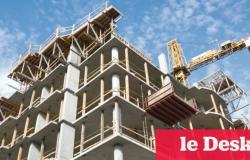The decision by the prosecutor of the International Criminal Court to request the issuance of arrest warrants against Prime Minister Benjamin Netanyahu and Defense Minister Yoav Gallant has shaken Israel. Netanyahu and his supporters quickly called the move anti-Semitic, while the political opposition, notably centrist Yair Lapid, also expressed disagreement: “We are fighting a just war, it must be clear that we will not remain silent about this.»
This position from the opposition was expected. Since October 7, the opposition has only criticized the government for its lack of efforts to free the hostages. Otherwise, it fully supported the state-led war, despite mounting civilian casualties and warnings from the International Court of Justice of the risk of imminent genocide.
What opposition to the government after October 7?
Tensions between the two parties are escalating. Reservists are threatening not to join their unit if the reform is promulgated, high-tech companies are starting to transfer their tax and banking domicile to other countries and police violence is increasing… the country is in chaos. After the Hamas attack, the state collapsed. Public services and security forces take hours or even days to respond, leaving civilians to fend for themselves. On October 11, Benny Gantz, Netanyahu’s main opponent and leader of the centrist National Camp party, joined the “emergency government”: “Israel above all“, he explains. Yaïr Lapid, for his part, conditions his entry on the departure of far-right leaders. Netanyahu refuses, needing their support. Facing three corruption trials, he seeks to stay in power to avoid prison, knowing that centrists would abandon him after the war, leaving him dependent on right-wing and ultra-Orthodox parties.
While many political and security leaders say they take responsibility for the failure of October 7, Netanyahu refuses to do so. According to a poll published on November 3, he is seen as the main person responsible for the bankruptcy of the state (by 44% of respondents, with 33% blaming the security forces above all). Additionally, 76% of those surveyed believe he should resign, with 47% believing he should do so only after the war ends. Netanyahu therefore has every interest in the war continuing as long as possible. A growing divide divides society over the war’s two official goals: the “crushing” of Hamas and the release of the hostages. Some believe that the release of the hostages through negotiations should be a priority, while others support the intensification of the military operation. Smotrich and Ben-Gvir repeatedly threaten to bring down the government if Israel ends the war: “If we miss this opportunity, this government will have no right to exist», declared Ben-Gvir in Parliament at the end of January. They want not only the continuation of the war, but also the recolonization of Gaza. On January 28, they organized a rally for this purpose, attended by no less than 11 ministers, from their parties, the Likud and the ultra-Orthodox parties. Faced with the government’s refusal to negotiate, the demonstrations by the families of hostages and their support is intensifying. These demonstrations were quickly associated with those before October 7 against judicial reform, and the demonstrators were labeled as opponents, even “leftists”.
Police repression against hostage families is increasing, and government supporters accuse them of being “Hamas supporters”. Although the disagreement is over the release of the hostages, the Palestinian victims remain deliberately ignored. Note that even the new leader of the Labor Party, Yaïr Golan, declared on October 13 regarding the Palestinians living in Gaza: “Until the hostages are freed, they may starve. It’s completely legit.»
Silence! A war is going on
The tragedy of Palestinian victims in Gaza and the West Bank is largely ignored in Israeli public debate, including within the opposition. With the exception of Haaretz and Local Call, national media cover the ongoing events in Gaza in a partial manner, neglecting the tragedy experienced by Palestinians and participating in state propaganda. Some mainstream media journalists, like Channel 12’s Danny Kushmaro, even go so far as to openly encourage genocidal acts, saying on camera: “You must not give them anything, not even a spoonful of water, a war is a war“. Recently, reports have attempted to discredit reports from Gaza, including denying the reality of the famine. A small minority tries, in vain, to denounce state abuses. Among these dissident voices are Palestinians with Israeli citizenship: having demonstrated or expressed their opinions on social networks often results in them being arrested.
This repression targeting government critics is not new in Israel, but it intensifies in times of crisis, with notable radicalization during this period.
The forgotten protest against judicial reform
In times of war, Israeli society emphasizes unity, putting aside political differences and reducing criticism of the state and its institutions. However, at the start of the current conflict, this unity was difficult to achieve due to the political crisis that has divided the country since early 2023. On January 4, 2023, a week after the formation of the new Netanyahu government, the Minister of Justice announced a judicial reform aimed at restricting the powers of the Supreme Court, the only counter-power to the government. Very quickly, a vast protest emerged. Every Saturday evening, hundreds of thousands of Israelis gather to protest against the reform. This opposition, mainly composed of the center and the Zionist left, targets two main figures alongside Netanyahu: Finance Minister Bezalel Smotrich and National Security Minister Itamar Ben-Gvir. Both from the far right, they carry a religious, racist and supremacist agenda. While Smotrich embodies the settler movement and prioritizes West Bank annexation and settlement expansion, Ben-Gvir focuses on “internal security,” calling Palestinians with Israeli citizenship an “internal threat.”
Protesters from the center and the Zionist left mainly criticize the religious orientation of far-right leaders, who advocate a state governed by Jewish law. They warn of the potential consequences of curbing the Supreme Court’s power, fearing that it would further the agenda of the far-right and undermine the rights of women, non-religious people and non-religious minorities. Jews. The term “minorities” allows protest leaders to avoid the use of the term “Palestinians”, which is completely absent from their discourse, as well as the question of occupation in the West Bank.
The radical left, grouped in the “Anti-Occupation Bloc” collective, contests this choice and calls for linking the challenge to judicial reform to the denunciation of the government’s plan to annex the occupied territories and formalize the Jewish supremacy of the sea to the Jordan. Faced with an increasingly persistent and widespread protest, a counter-protest is being organized in favor of the government and “in the name of the will of the people”.
The original version of this article was published on The Conversation







